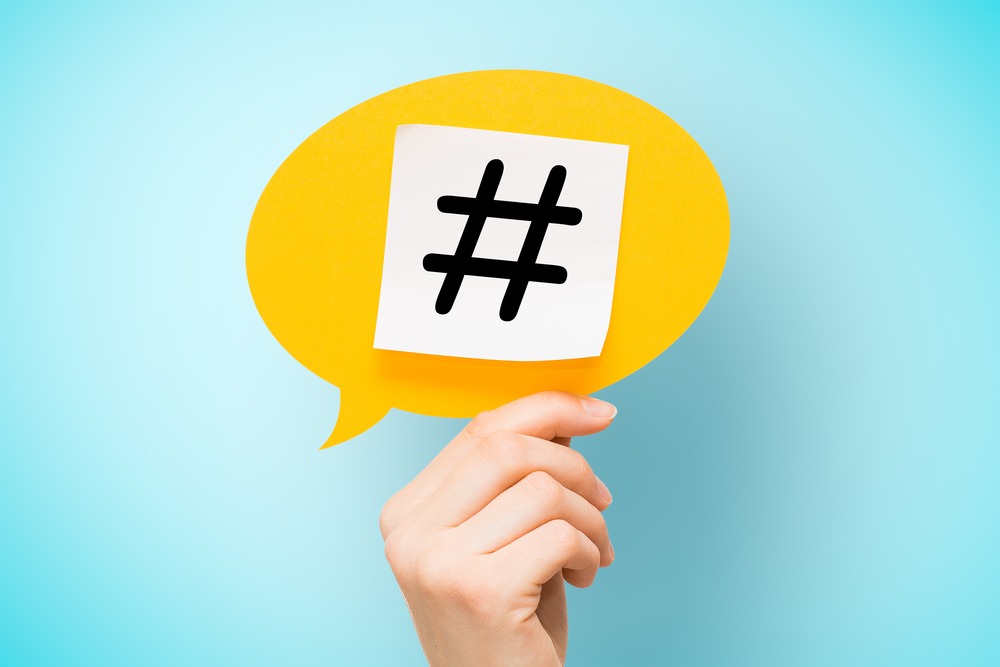
What Is A Hashtag and How Do I Use One?
When it comes to pop culture and social media content, almost everything has one thing in common: the hashtag. But what is a hashtag?
No, it’s not a sticker indicating the price of your hash browns. It is, in fact, a phenomenal and still underutilized tool to reach a massive following with your content or message.
Black Lives Matter? Almost every single piece of content posted on social media regarding the wildly significant and timely social movement was posted with #blacklivesmatter or #blm, which grouped all of those posts into their own distinctive category, enabling easy searchability.
Questions, concerns, news, opinion…all of it was categorized neatly and accessibly on Twitter, Facebook, Instagram and all other social media platforms in existence. This is hugely significant in terms of mass exposure to a worldwide audience.
Let’s examine the sometimes misunderstood but crucial hashtag in today’s online culture.
What are Hashtags?

First, the basics:
- The hashtag is the character ‘#’ and is placed before key words and phrases in social media content
- Using hashtags makes the word or phrase become active, which means that your photo, update, or tweet appears when others search for that particular hashtag
- Comments and conversations about topics are found generally under one hashtag (#blacklivesmatter) or a similar variation (#blm)
Let’s examine Twitter in this context. Multiple Twitter users means multiple likes and interests. Whether those interests are food, music or politics, hashtags exist to separate conversations into easily searchable categories.
For example, you can create a hashtag for a particular conference, so that the communication and information about and at that conference is isolated into one hashtag. All relevant content under one accessible hashtag.
Hashtags Can Bring the World Together

In addition to centering conversations around specific topics, you can also share your enthusiasm, passion, or interest with millions of people worldwide by using hashtags.
Whereas once upon a time we were limited to sharing our interests with only a close circle of friends in our community, hashtags have opened up the world to us. A user in California can search hashtags on any topic that interests them, and will instantly find posts from people all over the globe with the exact same passion.
Hashtags unify and foster togetherness, and this is especially relevant and advantageous in terms of politics and significant worldwide events that affect us all.
Want to broaden your discussion with people equally interested in football? Search #football, and you are spoiled for choice with user content. Need to narrow that down to a more specific area? Search #collegefootball or #nfl.
Voila – you can tailor your hashtag search and immediately find what you’re looking for. Think of it as a highly defined search engine.
How To Use Hashtags

Hashtags originated on Twitter, and since then they have become pervasive on many other social media platforms like Instagram and Facebook. You would be hard pressed to see many posts these days that don’t use the ubiquitous hashtag.
However, when it comes to popular topics that magnitudes of people are interested in, it is imperative to make and use hashtags that others will actively search for.
Precise Hashtags Are More Effective
For example, posts about the Black Lives Matter movement can also be found by using the hashtags #protest and #freedom, but doing so will also call up posts about a wider range of those subjects from all over the world. Therefore, it’s pivotal to be as specific as possible.
An effective hashtag is unique and can identify a conversation across national borders. For example, a common hashtag when searching for posts about data-driven journalism is #ddj. Hashtags such as these are quick to write and do not consume too much text on Twitter, for instance, where a post is limited to 280 characters or less.
The main idea around hashtags is that accessible keywords are easily assigned to your posts. On the visual, photo-sharing app Instagram, posts with hashtags are grouped with other posts using the same ones, and thus they are easily identifiable and searchable for other users.
However, if the hashtags are too long, inaccurate or unspecific, the likelihood of others finding and using that hashtag is limited. It’s easy to let your content become lost in millions upon millions of posts this way.
It is crucial to be able to effectively use hashtags in the current media landscape. There is an overwhelming amount of information and interactivity on social media, and hashtags are essential in filtering out what’s irrelevant and honing in on your specific area of interest.
Adapting to the latest digital environment is monumental in terms of navigating through the constant barrage of information and content, and this includes mastering the wee but mighty hashtag.
Hashtags Will Be Regulated In The Future

Although there are general rules for using hashtags effectively, no one can decide which ones are right or wrong for your posts. Essentially, you can use hashtags at your will, and can even place hashtags on posts that have no relevance whatsoever to their content.
It is believed that at some point there will be some form of index regulation on Twitter, for example, with which bots will ensure that certain hashtags are used correctly.
For instance, #football is said to be one of the most-used hashtags in the world, but that doesn’t mean that it is exclusive. Anyone can use it on any post that they choose, and posts can show up in #football search results that have nothing to do with the sport itself.
People may use this as a tactic to expose their posts to wider audiences, but it is inevitable that in time it will no longer be possible to misrepresent your content.
Further, one of the reasons that introducing strict regulations on hashtags is that social media platforms are increasingly being used for information retrieval. In this regard, it’s crucial to be able to filter out the irrelevant from the relevant.
Journalists and news outlets are constantly utilizing Twitter as a source for breaking news and information, which means that the traditional definitions of social media and news gathering have changed.
We will soon see a huge increase in using social media and hashtags as a method of information retrieval, which absolutely will require hashtag regulation.
Hashtags Are Forever
Hashtags may be a little bit of a learning curve if you are new to the social media game, but they make complete sense in terms of effective information gathering and sharing.
Gone are the days when social media was just a way to share photos with friends on Facebook. If one learns how to use hashtags effectively, the world is literally at your fingertips. Now let’s get tagging!



Sorry, the comment form is closed at this time.